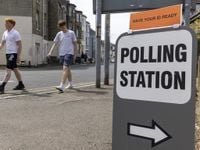In a landmark decision announced on July 18, 2025, the British government declared it will lower the voting age from 18 to 16 ahead of the next national election, expected by 2029. This move, championed by the Labour Party, represents the most significant reform to the UK electoral system since 1969, when the voting age was last reduced from 21 to 18. The change is part of a broader package of reforms aimed at modernizing British democracy, enhancing electoral participation, and restoring public trust in political institutions.
Prime Minister Keir Starmer emphasized the rationale behind the reform: "If you pay in, you should have the opportunity to say what you want your money spent on." This statement underscores a key argument from supporters who note that many 16-year-olds in Britain already contribute to society by working, paying taxes, and even joining the military with parental consent. Proponents argue that enfranchising younger voters will help cultivate lifelong voting habits, especially since many 16- and 17-year-olds are still in full-time education and living at home, which can foster more engaged and informed first-time voters compared to older youth navigating transitional life phases.
Indeed, research supports this perspective. A 2023 University of Edinburgh study found that younger first-time voters in Scotland tend to "retain a habit" of voting and participate in elections at higher rates than older first-time voters. Alberto Medina from Tufts University's Center for Information & Research on Civic Learning and Engagement (CIRCLE) highlights that "voting is habit-forming," and starting early, particularly while still in school, increases turnout and political engagement. Similar findings from Denmark and Austria bolster the argument that lowering the voting age can have lasting positive effects on democratic participation.
Britain will join a select group of countries with a voting age of 16, including Austria, Brazil, Ecuador, and some European Union nations like Belgium, Germany, and Malta, which allow 16-year-olds to vote in European Parliament elections. Scotland and Wales, parts of the UK with devolved governments, have already permitted 16- and 17-year-olds to vote in local and regional elections. The new legislation will extend this right to all national elections across the UK, enfranchising approximately 1.6 million teenagers.
Alongside lowering the voting age, the British government announced several other "seismic" electoral reforms. These include allowing bank cards as valid voter identification, tightening campaign financing rules to prevent donations from shell companies with unclear ownership, and introducing automatic voter registration. Democracy Minister Rushanara Ali stated that these measures will strengthen safeguards against foreign interference and improve the integrity of British elections. Additionally, tougher penalties will be imposed on those convicted of intimidating candidates, reflecting a comprehensive approach to protecting democratic processes.
Despite these optimistic reforms, the announcement has met mixed reactions. Critics, particularly from the Conservative Party and right-wing factions, argue that 16- and 17-year-olds are not yet adults in many respects. Conservative lawmaker Paul Holmes questioned in the House of Commons, "Why does this government think a 16-year-old can vote but not be allowed to buy a lottery ticket, an alcoholic drink, marry, or go to war, or even stand in the elections they’re voting in?" Mark Goodwin, a politics lecturer at Coventry University, noted the paradox, observing that "socially, if anything, we’re moving in the opposite direction," with the age of majority increasingly recognized as 18.
Opponents also accuse the Labour Party of a political power grab, suggesting the party hopes to capitalize on the addition of roughly 1.5 million young voters who, according to polling, tend to lean left. Nigel Farage, leader of the hard-right Reform UK party, accused Labour of trying to "rig the system," while former Conservative foreign secretary James Cleverly described the move as a cynical attempt to boost Labour’s standing amid poor poll numbers. However, experts caution that the youth vote is far from monolithic. Young voters are split across several parties, including Labour, Greens, and Liberal Democrats, with some even gravitating towards populist right or outsider parties. Goodwin warns that "if it is a cynical ploy to get more Labour votes, there’s certainly an element of risk about where those votes would ultimately be cast."
Voter turnout remains a pressing concern. The 2024 general election saw participation at just 59.7%, the lowest in over two decades. Pro-democracy organizations welcome the reforms, including automatic voter registration and broader accepted forms of identification, as crucial steps to reverse this trend. The previous Conservative government’s 2022 introduction of mandatory photo ID at polling stations was criticized for potentially disenfranchising millions, especially young people, ethnic minorities, and the economically disadvantaged. The Electoral Commission estimated that about 750,000 people did not vote in 2024 due to lack of identification.
Still, skepticism persists about whether lowering the voting age will meaningfully boost youth engagement. Stuart Fox, a politics lecturer at the University of Exeter, remarked that it is "far from clear" if the change will increase turnout among young voters, particularly those from poorer backgrounds who historically show the least political participation. Fox suggests that other measures, such as enhancing citizenship education and expanding volunteering opportunities in schools, might be more effective in fostering engagement.
The debate over voting age reform is not unique to the UK. In the United States, the voting age has remained at 18 since the 26th Amendment was ratified in 1971, lowering it from 21. While some states allow 17-year-olds to vote in primaries if they will be 18 by the general election, and several cities permit 16- and 17-year-olds to vote in local elections, national efforts to lower the voting age have stalled. Democratic Representative Grace Meng introduced bills in 2018 and 2023 to lower the age to 16, but both failed amid significant opposition. Public opinion polling in the U.S. shows strong resistance, with a 2019 survey finding that 75% of registered voters opposed enfranchising 17-year-olds.
Nonetheless, the UK’s move has energized advocates for youth voting rights globally. Alberto Medina from CIRCLE called it "exciting to see this happening at a national level," suggesting it could inspire similar reforms elsewhere. Indeed, the UK joins a growing list of countries embracing youth enfranchisement, reflecting a broader trend toward recognizing the political voice of younger citizens.
As Britain prepares for its next general election, the lowered voting age and accompanying reforms will be watched closely. Will this bold step rejuvenate British democracy and restore trust in political institutions? Or will the challenges of youth engagement and political fragmentation temper its impact? One thing is certain: the UK is embarking on a new chapter in its democratic evolution, inviting a younger generation to shape its future.






